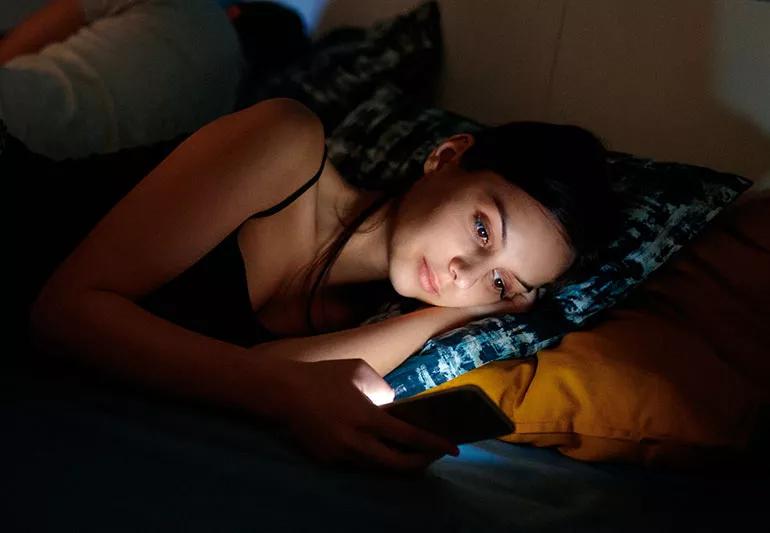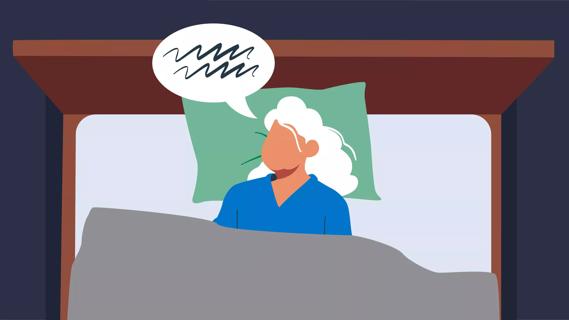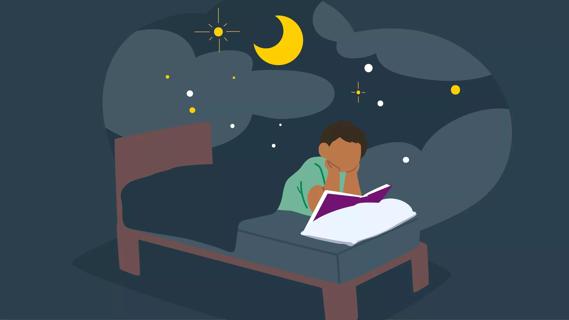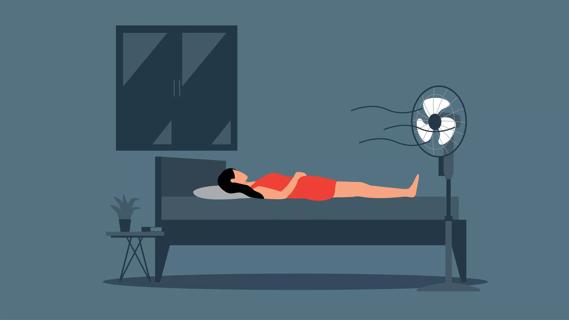Advertisement
People who live with streetlight glare are more likely to report sleeping trouble

How many times have you gotten cranky when your spouse has the reading light on or when sunlight is streaming through the windows when you’re trying to fall asleep?
Advertisement
Cleveland Clinic is a non-profit academic medical center. Advertising on our site helps support our mission. We do not endorse non-Cleveland Clinic products or services. Policy
Many things can impact our ability to sleep. Too much noise and too much caffeine are common culprits, but light can keep you from getting adequate rest too, says sleep disorders specialist Reena Mehra, MD.
People who live in more densely populated areas that are lit at night with bright street lights or signs are more likely to report trouble sleeping research suggests.
Although the study doesn’t prove cause-and-effect, the scientists believe that intense outdoor illumination in the evening interferes with quality of sleep. People with high nighttime light exposure, for example, were more likely than those in low-lit regions of the country to be dissatisfied with their sleep quantity or quality, the findings showed.
“Too much light can impact the quality of our sleep,” says Dr. Mehra. “It’s all about our natural circadian rhythm, or our sleep/wake cycle.”
Our circadian rhythm causes you to feel more alert or sleepy, depending on the time of the day, according to the National Sleep Foundation. Your levels of melatonin, a sleep-promoting hormone, rise in the evening and exposure to light delays the release of that hormone.
“The light exposure is, in essence, somewhat disrupting our circadian rhythm,” she says. “This is especially true at night because you don’t want that bright light exposure at night when you’re supposed to be asleep.”
Bright light not only keeps you alert, but it is the strongest external cue that we have to signal our circadian rhythm. Basically, we take cues from the intensity of light and the timing of light and that’s what helps us sleep and wake up.
Not only that, but disrupted circadian rhythms are also linked to obesity, depression, seasonal affective disorder and diabetes.
Research using data from the Defense Meteorological Satellite Program also looked at the amount of light people were exposed to at night. Findings showed that those who had light exposure while sleeping got about 10 minutes less sleep per night. They also were more likely to report fatigue, wake up confused during the night, and have excessive sleepiness and impaired functioning during the day.
Those who lived in cities with a population of 500,000 or more were exposed to street lights three to six times more intense than those who lived in lesser-populated areas.
Advertisement
If you live near bright street lights, taking preventative measures is a good idea.
“Blackout drapes are great and can be very effective especially for shift workers who work at night,” says Dr. Mehra. “When shift workers go home and then try to sleep, it’s hard to do if the sun is streaming in through the windows.”
In addition to blackout curtains or shades, a sleep mask that covers your eyes can be effective for blocking out unwanted light.
If you’re the type of person who loves to scroll through your social media or watch videos on your smart phone before dozing off, it’s important to start weaning yourself off of that habit. Smart phones give off a blue light that mimics daylight, which in turn prevents you from falling asleep in a timely manner. Get in the habit of cutting off your screen time one hour before bed (this includes TVs, too!) and see the difference before your closed eyelids.
Advertisement
Learn more about our editorial process.
Advertisement

Sleeping with separate blankets can help you get the ZZZs you need — without fighting for covers all night

Stress, weight gain and forgetfulness are just a few effects of losing sleep

Stress, alcohol, sleep apnea and (you guessed it!) scary movies are a few common causes of bad dreams

Recording your dreams may help you become more mindful, understand your thought patterns, process your emotions and even reduce your stress

Chamomile, lavender and valerian root teas may offer a faster route to dreamland

Many factors can contribute to sleep talking, like stress or anxiety, lack of or low-quality sleep, or even more serious sleep-related conditions

A consistent, structured routine, which may include incentives, can help children learn to stay in bed and get the ZZZs they need

Getting to the root cause of night sweats — like menopause, medication side effects, stress or anxiety — can help you manage them

Focus on your body’s metabolic set point by eating healthy foods, making exercise a part of your routine and reducing stress

PFAS chemicals may make life easier — but they aren’t always so easy on the human body

While there’s little risk in trying this hair care treatment, there isn’t much science to back up the claims